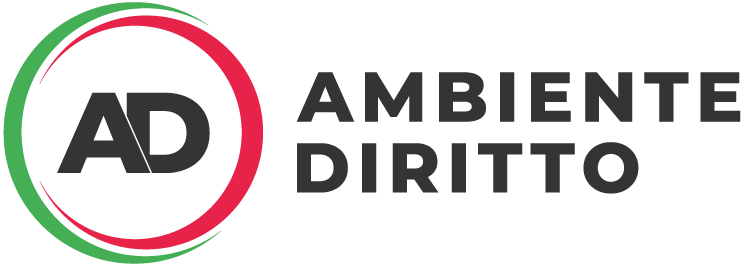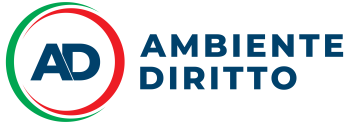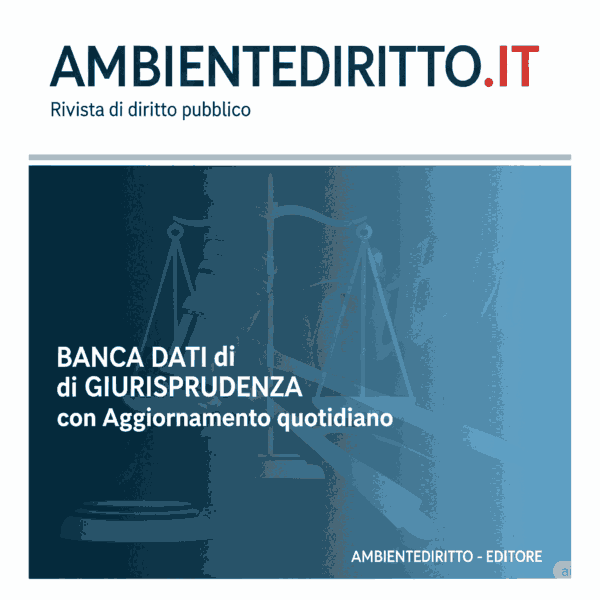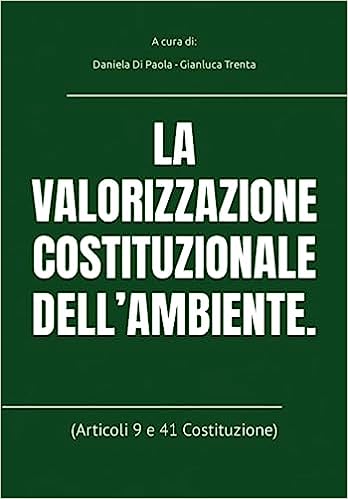______________ AMBIENTEDIRITTO ______________
LA TRANSIZIONE ENERGETICA TRA AUSILI FINANZIARI PUBBLICI ALLE COMUNITÀ ENERGETICHE E MISURE ANTIRICICLAGGIO
The energy transition between public financial support for energy communities and anti-money laundering measures
Domenico Andracchio
Abstract [It]: le Comunità energetiche e le altre forme di autoconsumo sono uno degli strumenti con cui le politiche e la regolazione (europea e nazionale) mirano a favorire la transizione energetica. Le risorse pubbliche destinate sono ingenti: una parte di esse trova la fonte di provvista nelle componenti tariffarie fatturate in bolletta agli utenti energetici; un’altra parte, meno consistente, trova invece la sua fonte nelle risorse che il PNRR destina alla Missione 2 «Rivoluzione Verde e Transizione ecologica». Perché le Comunità energetiche possano effettivamente contribuire al passaggio ad un sistema alimentato da soli fonti rinnovabili, l’attività elargitiva dei pubblici poteri deve essere accompagnata – come d’ovvio – da un’attività di controllo. I rischi connessi ad un distorto utilizzo delle risorse sono tanti. Tra questi, quello di impiegare le elargizioni pubbliche per fini di riciclaggio di denaro. E allora: quali controlli sono previsti nella regolazione degli incentivi pubblici alle Comunità energetiche e alle altre forme di autoconsumo? Come si atteggiano, in relazione ad essi, i controlli antiriciclaggio per la individuazione del titolare effettivo? Sono presenti criticità regolatorie? Occorre intervenire con novelle legislative? Oppure la soluzione esiste già e si tratta solo di attuarla? Senza troppo indugiare su aspetti (ormai noti) di taglio descrittivo e ricognitivo, il saggio prova a rispondere a queste domande prediligendo un approccio gius-realistico volto a ricavare «l’essere» e il «dover essere» dalla combinazione del «dato positivo» con «elementi extra-normativi».
Abstract [En]: energy Communities and other forms of self-consumption are among the tools through which European and national policies and regulations aim to promote the energy transition. The public resources allocated to this goal are substantial: part of the funding comes from tariff components billed to energy users, while another, less significant, portion derives from the resources that the PNRR allocates to Mission 2, «Green Revolution and Ecological Transition». For Energy Communities to effectively contribute to the shift towards an energy system powered exclusively by renewable sources, the disbursement activity of public authorities must – naturally – be accompanied by oversight mechanisms. The risks associated with the misuse of public funds are manifold. Among them is the risk of using public grants for money laundering purposes. So: what forms of control are envisaged in the regulation of public incentives for Energy Communities and other forms of self-consumption? How are anti-money laundering checks, particularly regarding the identification of the beneficial owner, structured in this context? Are there any regulatory shortcomings? Is legislative intervention necessary, or does the solution already exist and merely need to be implemented? Without dwelling too much on (by now well-known) descriptive and reconnaissance aspects, this paper seeks to answer these questions, favoring a legal-realist approach one aimed at deriving both the «is» and the «ought» from a combination of «positive law» and «extra -legal elements».
Parole chiave: transizione energetica, Comunità energetiche e autoconsumo, incentivazioni pubbliche, controlli antiriciclaggio
Keywords: energy transition, energy communities and self-consumption, public incentives, anti-money laundering controls
Le decisioni dell’amministrazione sono timide come le ragazzine
(F. Kafka)
SOMMARIO: 1. Premessa − 2. Realtà giuridica effettuale ed Energy communities − 3. Gli ausili finanziari pubblici e gli obblighi antiriciclaggio – 3.1. Le misure antiriciclaggio nella regolazione delle contribuzioni pubbliche alle Comunità energetiche – 4. Brevi spunti conclusivi.
Scarica allegato






 AMBIENTEDIRITTO.IT Casa Editrice
AMBIENTEDIRITTO.IT Casa Editrice